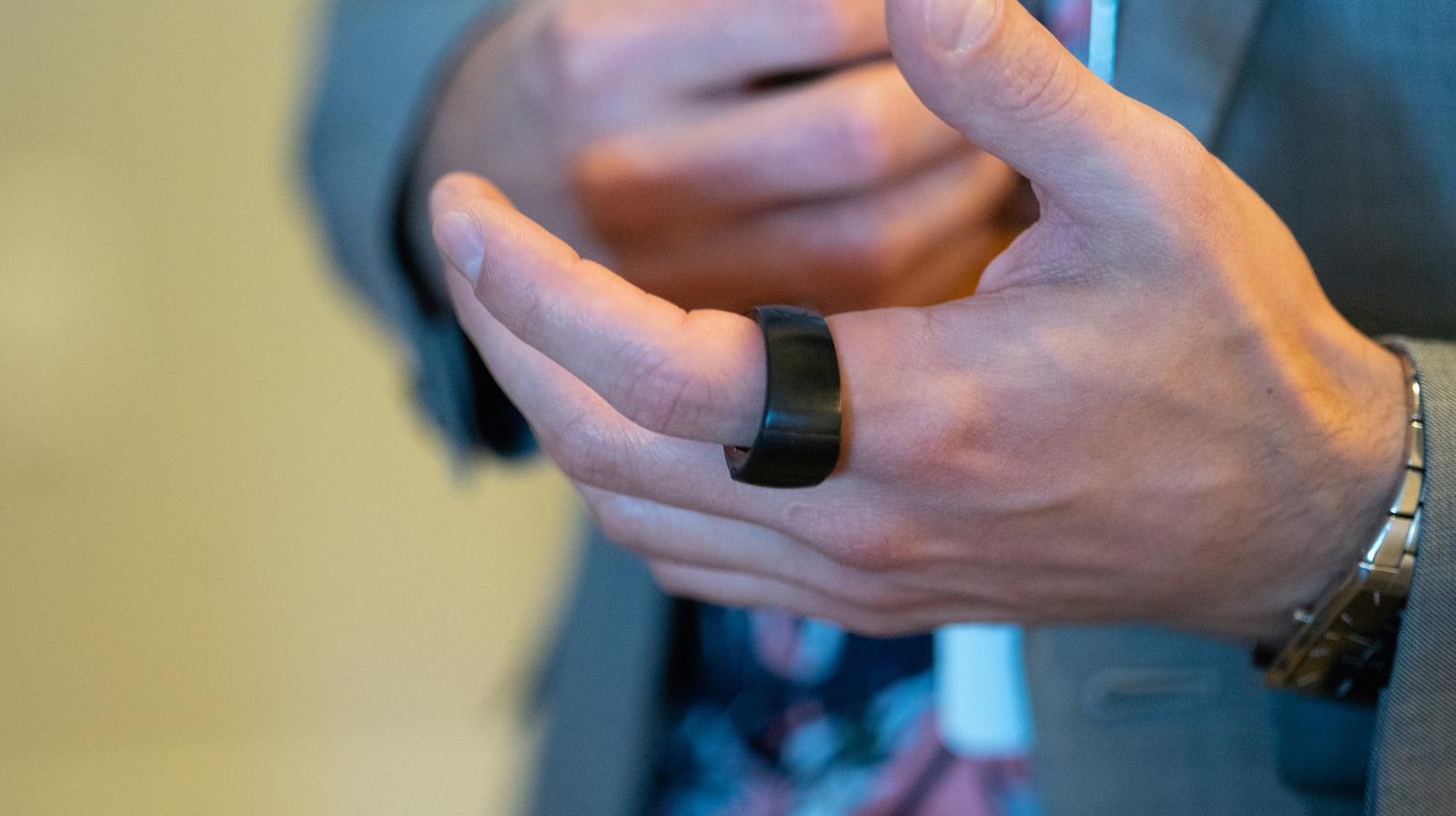Smart Rings And Fidelity: A New Era Of Relationship Trust?

Table of Contents
How Smart Rings Work and Their Fidelity-Related Features
Smart rings, equipped with advanced biometric sensors and connectivity, are transforming personal technology. Their functionality goes beyond simple fitness tracking; many now offer features directly impacting relationship dynamics, raising questions about smart rings and fidelity. The technology behind these rings involves a sophisticated interplay of:
- Biometric Sensors: These sensors continuously monitor various physiological data, including heart rate, sleep patterns, and even skin temperature. Changes in these metrics can potentially indicate stress or unusual activity.
- Connectivity: Most smart rings connect wirelessly to smartphones via Bluetooth or Wi-Fi, allowing for data synchronization and integration with various apps.
- GPS Tracking: Some models incorporate GPS tracking, providing location data that can be accessed by the user (and potentially shared with a partner). This feature, while potentially useful for safety, fuels much of the debate around smart rings and fidelity.
Fidelity-Related Features: These capabilities are often marketed subtly, but several features are relevant to anxieties surrounding fidelity:
- GPS Tracking: Provides real-time location information, potentially alleviating concerns about a partner's whereabouts.
- Activity Monitoring: Unusual activity patterns or deviations from established routines could trigger alerts.
- Heart Rate and Sleep Pattern Analysis: Significant changes in these patterns might indirectly suggest stress related to infidelity, although this is highly speculative and should not be the sole basis for suspicion.
- Integration with Other Apps and Services: Data from the ring can be integrated with other health and fitness apps, providing a more holistic view of a person's activity.
Privacy Concerns: The continuous collection of highly personal data raises significant privacy concerns. What happens to this data? Who has access to it? These questions are crucial in the discussion of smart rings and fidelity.
The Potential Benefits of Smart Rings for Relationships
While the use of smart rings for monitoring fidelity is controversial, proponents argue several potential benefits for relationships:
- Increased Transparency and Communication: Open sharing of location data and activity patterns can foster greater transparency and reduce the need for unnecessary suspicion.
- Reduced Anxiety and Suspicion: For some couples, the ability to track a partner's location can alleviate anxieties associated with infidelity.
- Improved Trust and Security: The perceived increase in security could lead to greater trust between partners.
- Proactive Conflict Resolution: Data from the ring, if interpreted carefully and responsibly, could serve as a starting point for discussions about potential relationship issues.
The Potential Drawbacks and Ethical Concerns
Despite the potential benefits, the use of smart rings for managing fidelity raises serious ethical and practical concerns:
- Erosion of Trust and Intimacy: The constant monitoring implied by the use of such devices could erode trust and intimacy within a relationship. It suggests a lack of faith and a reliance on technology rather than open communication.
- Violation of Privacy: The continuous collection of personal data raises significant privacy concerns, especially regarding sensitive biometric information.
- Potential for Misuse and Manipulation: The data collected could be misused or misinterpreted, leading to unfounded accusations and conflicts.
- Turning Relationships into Surveillance Systems: The reliance on technology for monitoring fidelity transforms the nature of the relationship into a form of surveillance, which can be highly damaging.
- Unrealistic Expectation of Foolproof Technology: No technology can guarantee absolute fidelity. Smart rings should not be seen as a foolproof solution to infidelity.
- Legal and Ethical Ramifications of Data Collection and Use: The legal implications of collecting and using this sensitive personal data are still largely undefined.
Alternatives and Healthy Relationship Practices
Rather than relying on technology like smart rings to address relationship anxieties, a stronger focus on healthy relationship practices is essential:
- Open Communication and Mutual Trust: Building a strong foundation of open communication and mutual respect is paramount in any healthy relationship.
- Individual Responsibility and Accountability: Fidelity is a matter of individual responsibility and commitment, not technological enforcement.
- Seeking Professional Help for Relationship Issues: If relationship issues arise, seeking professional guidance from a therapist or counselor is crucial.
- Alternative Relationship Tools and Apps: Explore apps that focus on improving communication and understanding rather than surveillance.
Conclusion
Smart rings offer intriguing possibilities for bolstering relationship trust, but their effectiveness and ethical implications require careful consideration. While they might reduce anxiety in some situations, they are no substitute for healthy communication and mutual respect. The use of smart rings and fidelity-focused technology should complement, not replace, fundamental relationship practices. Instead of relying solely on smart rings and fidelity-focused technology, focus on building a strong foundation of trust and open communication within your relationship. Are smart rings and fidelity truly compatible? The answer lies in a balanced approach.

Featured Posts
-
 2027
May 02, 2025
2027
May 02, 2025 -
 Bila Je Prva Ljubav Zdravka Colica Kad Sam Se Vratio Ti Si Se Udala
May 02, 2025
Bila Je Prva Ljubav Zdravka Colica Kad Sam Se Vratio Ti Si Se Udala
May 02, 2025 -
 Your Guide To Newsround On Bbc Two Hd
May 02, 2025
Your Guide To Newsround On Bbc Two Hd
May 02, 2025 -
 England Women Vs Spain Women Match Preview Prediction And Lineups
May 02, 2025
England Women Vs Spain Women Match Preview Prediction And Lineups
May 02, 2025 -
 Kshmyr Myn Eyd Ka Dn Bharty Fwj Ky Karrwayy Ayk Awr Nwjwan Shhyd
May 02, 2025
Kshmyr Myn Eyd Ka Dn Bharty Fwj Ky Karrwayy Ayk Awr Nwjwan Shhyd
May 02, 2025
